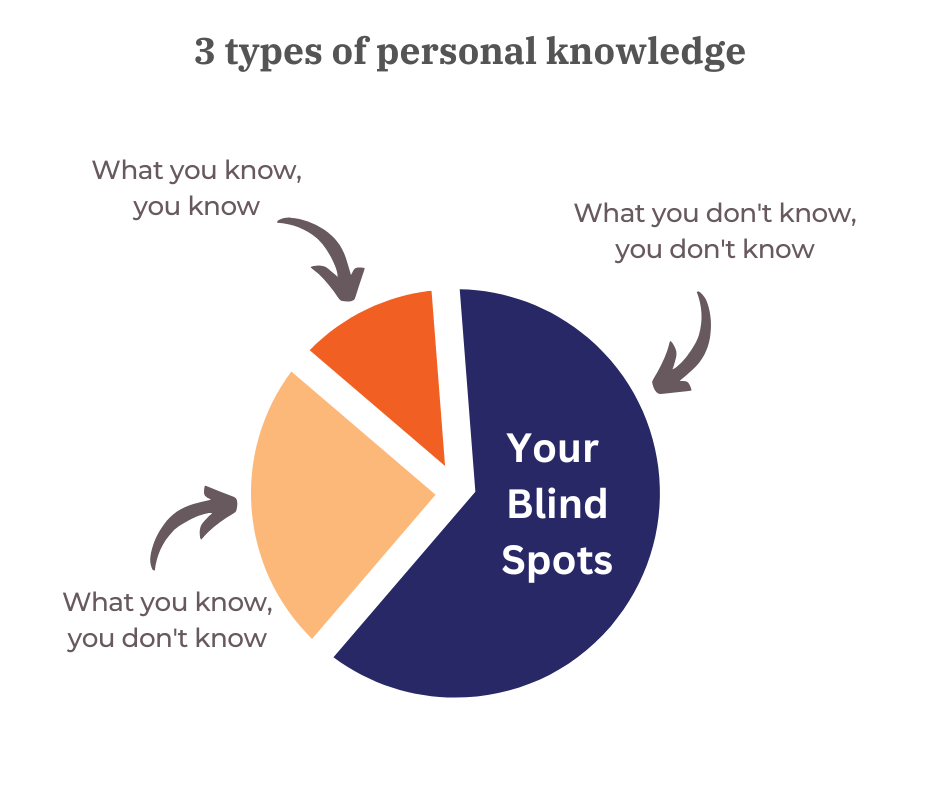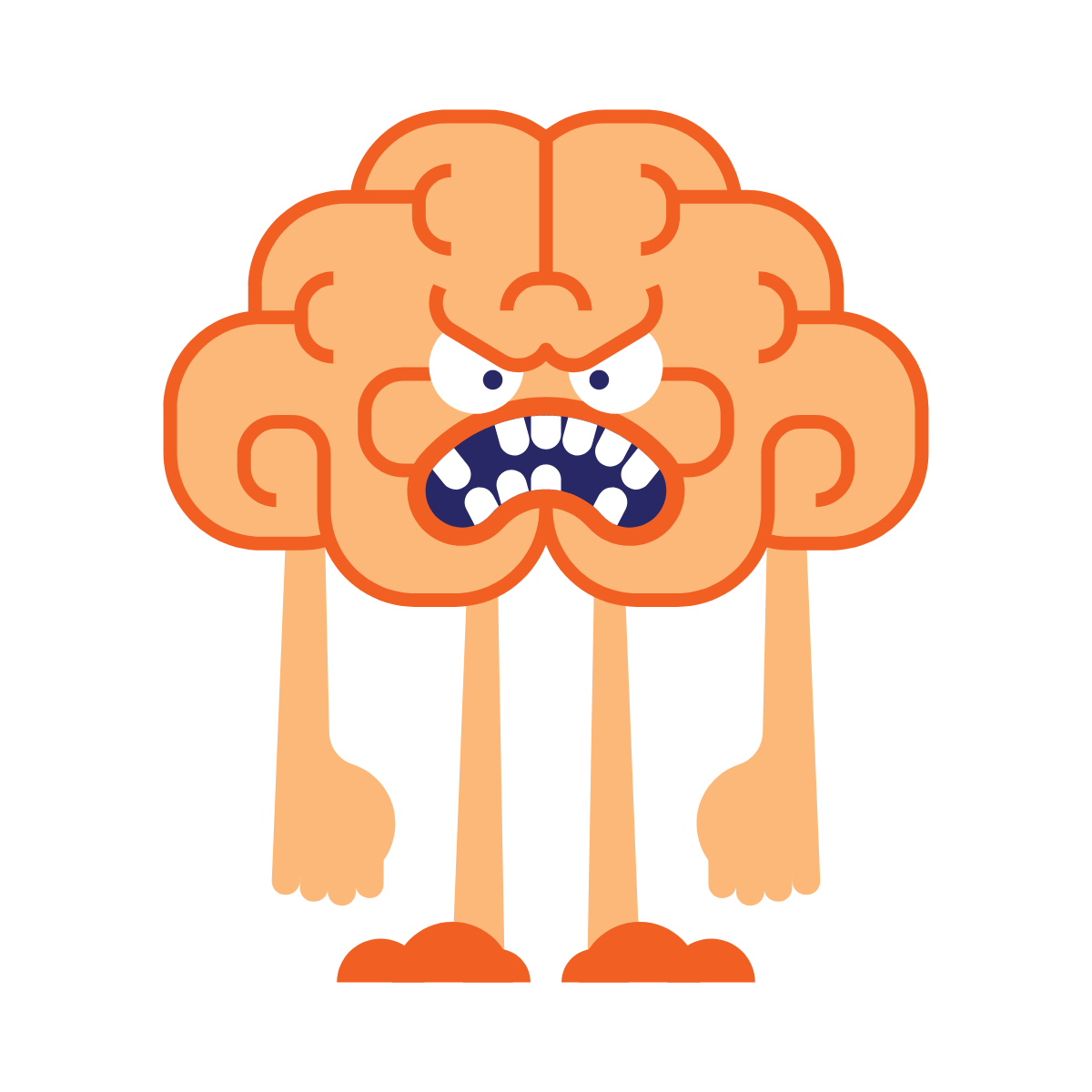The 3 See's of Coaching
When it comes to coaching, we each probably have a different idea of what it is, what it does, and what it gives us.
I remember thinking that I needed coaching when I became an executive for the first time because I was hoping someone would tell me what to do to be a “good executive”. I wanted them to tell me how to navigate the highly political landscape I suddenly found myself in so that I could effectively collaborate with others and deliver on the things my team and I were responsible for as I grew in my role.

And back when I was training for a marathon for the 3rd time in a row (and still hadn’t crossed a finish line yet) I looked for a running coach to tell me what I was doing wrong and guide me on the right things to do so that I could be capable enough to run those 26.2 miles and cross the gosh darn finish line.
Even now, as I hop into discovery calls with potential clients seeking leadership coaching, I find many of them hoping that I’d tell them what to do so that they could succeed in their roles (without losing their minds).
The irony of our desire for a coach to “tell” us what to do is that in reality it is the complete opposite. A pure coach who adheres to the competencies put forth by the ICF, never tells you what to do, and yet working with a coach can completely change your life. It can propel you forward and catalyze your growth in ways you never anticipated. Why is that and how the heck does that happen? Well, I believe it’s because of something I like to call the 3 “see’s” of coaching.
If we break pure coaching down to its core, we can see that it essentially does 3 things, or better yet, it helps us SEE in three ways, which I like to call, The 3 Sees of Coaching:
Be Seen and Heard
Working with a coach, who we trust and who helps to create a safe space for us to show up however it is we show up, listens to us, and just allows us to come as we are, is an incredibly liberating experience. Being able to voice our thoughts, emotions, concerns, frustrations, desires, beliefs, and whatever we have to say without judgment leads to us feeling validated. Our thoughts are validated. Our emotions are validated. Our existence is validated. And we feel it in our bones…we feel seen and heard.
One of the reasons why it’s so freeing to feel seen and heard is because when we’re not acknowledged, it’s almost as if we’re held captive by our own thoughts and emotions. They hold onto us and we hold onto them because we think and feel them so strongly, and NO ONE IS SEEING US OR HEARING US.
Being acknowledged and validated gives us a sense of release and relief - now that someone finally sees us and gets it, we can let go. Somehow letting it all go allows us to see things from a different perspective. That new lens on ourselves and the world alone (without the coach having said one thing) opens up possibilities and opportunities we didn’t even know existed. It helps us connect to ourselves, to others, and to the world around us.
It reminds me of the phrase, “I see you” used by the fictitious Na’vi in the movie Avatar. “I see you” meant more than just physically seeing someone. It meant that they see into your soul, acknowledging your existence, accepting you as you are, knowing the greatness you carry, and connecting with you on a deeper level - a level where the connection and interconnectedness of all things exists.
I mean, just think back to a time you were feeling so strongly about something and the someone else didn’t acknowledge you. Maybe you got angry. And maybe that anger led you to do things you wouldn’t ordinarily do like complain to others, talk smack about said person, change how you do things, etc. But once that person actually listens, and acknowledges how you feel, what you think, and seemingly agreeing with you, you don’t feel angry anymore. You might not even care as much about that thing you were angry about. And you might even find yourself feeling remorseful for having complained or done whatever it was you did when you were in the “non-validated-angry” state.

Having a safe space to articulate our thoughts and feelings is like an unshackling, a catharsis of sorts. Even hearing ourselves say things out loud for the first time, knowing that our essence is being witnessed and accepted by someone we trust, can act as a catalyst for growth and forward movement. It becomes a powerful tool for personal growth and self-improvement.
And so that first “See” of coaching, is in my opinion, the most important one. Without it, the next two “See’s” wouldn’t be possible.
See Our Blind Spots
When we are witnessed in our stories, seen, heard, and acknowledged in our humanity, it's like a weight is lifted from our shoulders, allowing us to perceive more deeply. A veil has been lifted from our eyes, hearts, and minds, revealing a new way of being. Our existence feels different.
This is the part when we start to see the things we didn’t know, we didn’t know about ourselves. All the blind spots. All the dark places. And all the powerful places. The things that hold us back and the things that light us up. The things keeping us stuck and the things that get us going.
With gentle yet powerful questions that alone challenge our assumptions, reflecting back things we say, noticing and pointing out patterns, coaches can help us see things differently. This is the part where we change because what we see changes. This is where transformation starts to occur because we can’t unsee what we now see.
Coaches show us where to look, but they don’t tell us what to see.
It’s like discovering a hidden room in your house that you never knew existed before. Once you find it, you can’t un-find it. You might have lived there for years without ever realizing this room was there, but now that you know about it, it changes your whole perception of the space. It’s the same with blind spots - once we see things in a new light, we can’t go back to the way we used to see them. We discover a whole new part of ourselves or the world around us, and it opens up so many new possibilities that didn't seem to exist before.
Here is where we’re able to discern content from context, from what happened to our story about what happened, so that we can see the power we really have behind creating our experience of life.
This power of perception is what allows us to uncover our blind spots and create new possibilities. For example, I once had a client who struggled with quitting and revealed a hidden belief holding him back. He bought a guitar for example, paid for classes, and practiced everyday for 2 weeks. Then everyday practice turned into every other day, which turned into once a week, which faded into nothing. The reason he gave himself was that he didn’t have time.
It still bugged him though, because he really wanted to learn to play the guitar. He wasn’t sure why he’d quit, and he’d been frustrated with himself for stopping. Through coaching, he realized that there was an inner dialogue going on in his mind that convinced him that he was stupid, that things shouldn’t be this hard, that he’s an idiot because he should’ve known or done better. And it was that inner dialogue that led him to quit because he didn’t want to feel like a failure - he didn’t want to hear those thoughts.
So when things didn’t come easy (like playing the guitar) he stopped working on them to protect himself from the hurtful, “you’re so stupid” thoughts that made him feel like a failure…leading him to truly fail at whatever it was he was attempting to do, which of course, reinforced his hidden belief that he was too stupid to do things that shouldn’t be this hard. It became a self-fulfilling prophecy that not only held him back from embarking on doing the things he truly loved and cared about, but also made him feel like crap in the meantime. And this wasn’t just applicable to the guitar. It was showing up almost every time things got hard - at work and in relationships too.

At the same time, he also discovered that he was very creative. He had a knack for envisioning future-states and thinking outside the box to bring ideas and people together. His strong sense of curiosity, deep appreciation for aesthetics, social intelligence, and ability to look at things with a fresh perspective allowed him to achieve some really hard things throughout his life and career. The new awareness of these two blind spots highlighted a few things for him:
- That his thoughts were of his own making
- His thoughts either held him back or propelled him forward. That at any given moment he can choose new thoughts that can help to create a new reality
- He has strengths that he can lean on to give him the boost he needed to get out of the mindset that was holding him hostage
Which brings me to the third SEE of coaching; being able to see a different future for yourself.
See a New Future
This is where the real value and magic of coaching happens. It’s where we start to envision and create a new future for ourselves. Yes, awareness of blind spots is a precursor for change, growth, and creating a new reality. But without action, our awareness remains stagnant and we’re unable to experience true transformation. Just like seeds need water to grow, awareness needs action to bring about tangible change.
If you always do what you’ve always done, you’ll always be where you've always been.
So where do you want to go from here? Where do you want to be?

Here’s where we get to choose what we will think, feel, and do differently. This is where we get to create our game plan and start experimenting. What new ways of thinking do we want to try on? What new ways of feeling? What behaviors? What’s our goal? Has it changed? What’s our action plan? Who’s going to support us?
Coaches work with us to help us think through and structure the steps we want to take towards a future that aligns with our values and goals, and supports us as we go back into the world, experiment, and come back with new insights - which leads to uncovering more blind spots, which then leads to more reflection, more learnings, more experimentation, and more growth.
Ultimately, it’s important to remember that the journey of growth and transformation is a process. It requires patience, effort, and self-compassion. Even though it’s exciting to gain new awareness and uncover blind spots, change takes time and effort, so it’s helpful to be gentle with ourselves as we navigate through it. And it’s totally ok, nay expected, for progress to slow down or setbacks to show up. It’s all part of the journey, and with the support of a coach, we can continue to move forward towards a new future aligned with our values and goals.
It's also critical to be kind to ourselves and others, acknowledge and celebrate our progress, and keep moving forward no matter what. Our possibilities and opportunities await us on the other side of our struggles.

 By
By




